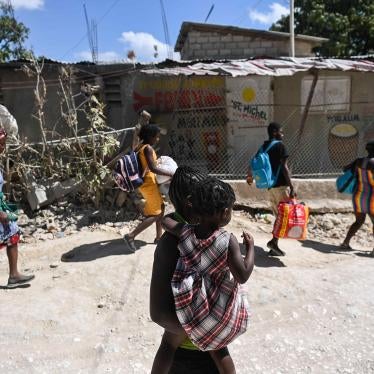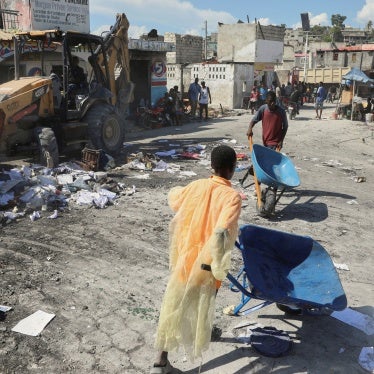Haiti: Scarce Protection as Sexual Violence Escalates
Transitional Government, Partners Should Act to Restore Security, Access to Aid

Haiti faces deep political, humanitarian, and security crisis. The assassination of President Jovenel Moïse in 2021 exacerbated Haiti’s constitutional crisis. Parliament has ceased to function and the justice system faces enormous difficulties operating. A severe earthquake in 2021 affected two million people. A spike in violence by gangs with alleged links to police and politicians, severely overcrowded prisons, and extensive impunity remain major concerns. A cholera outbreak has caused tens of thousands of suspected cases and hundreds of deaths since October 2022. The United States and other countries have returned tens of thousands of people to Haiti since January 2021.

Transitional Government, Partners Should Act to Restore Security, Access to Aid

Transitional Government Should Prioritize Their Protection, Reintegration

Haiti Needs an Urgent Rights-Based Response to Escalating Crisis

Humanitarian, Security Crisis Makes Deportations Unsafe

HRW Oral Statement - ID with HC Oral Update on Haiti - HRC60

Address Response Gaps, Protect Rights

Demand Action to End Escalating Israeli Crimes against Palestinians



MSS Urgently Needs Reinforcement to Stop Violence and Protect Those at Risk

Urgent International Action Needed as Transitional Government Loses Control

HRW Oral Statement - ID with the High Commissioner and the Independent Expert on Haiti - HRC58


Secretary-General Should Offer What Haitian Authorities Have Requested
